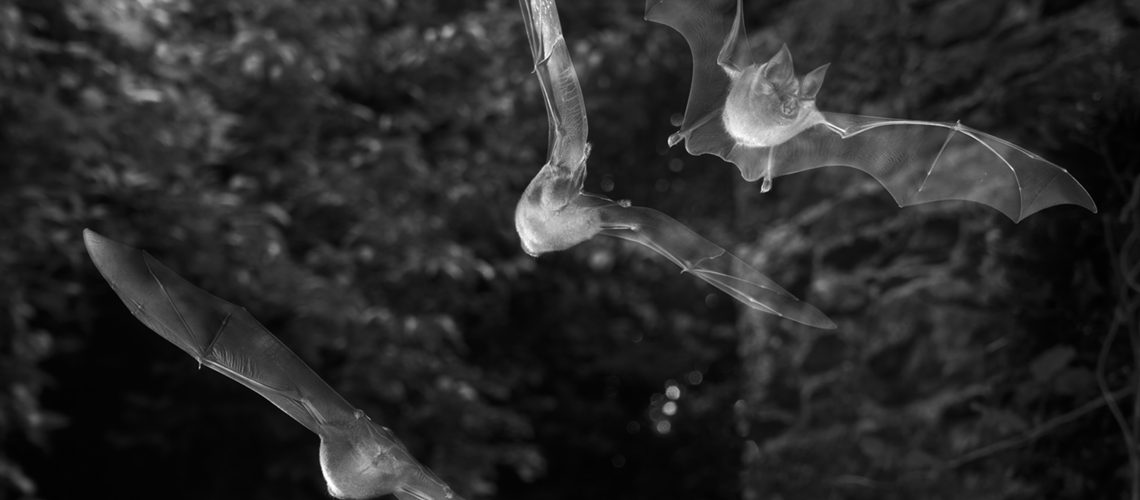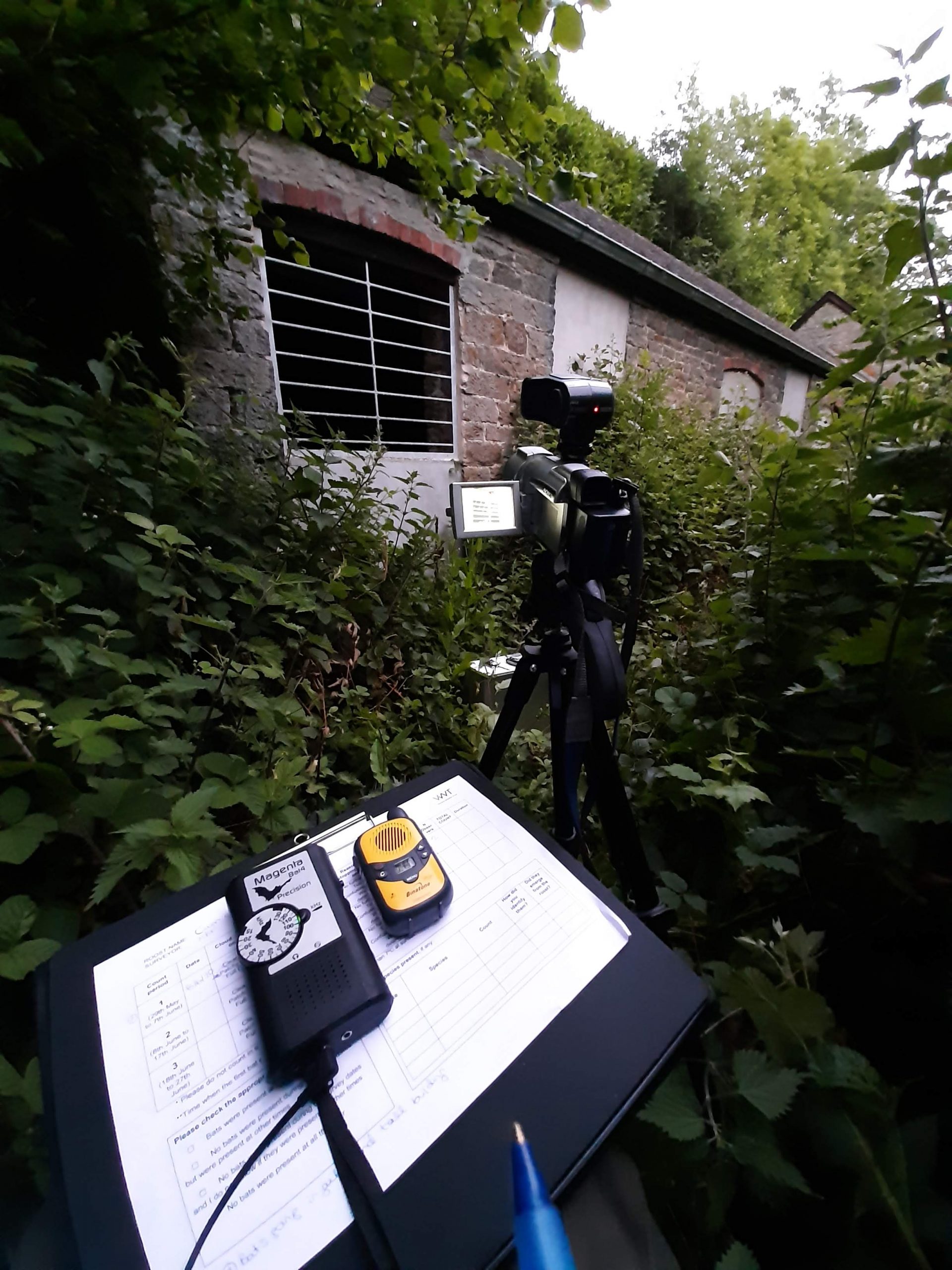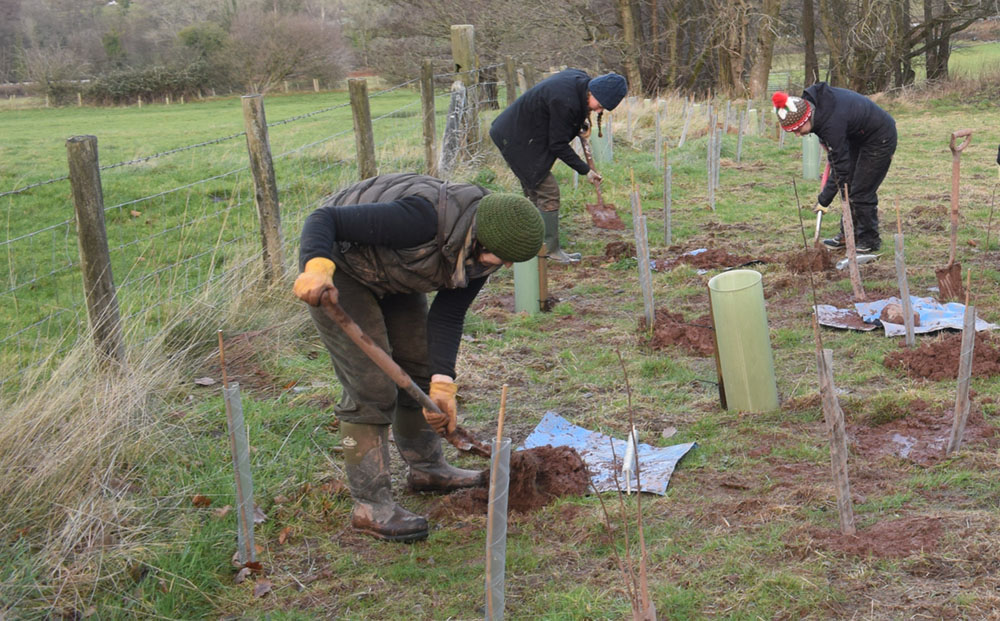
In recent years, volunteers have played a vital and ever-increasing role in Vincent Wildlife Trust’s mammal conservation efforts.
When it comes to our pine marten projects, volunteers have contributed thousands of hours of their time: walking forest tracks looking for evidence of marten presence in the form of scats; maintaining camera traps and trawling through collected footage; putting up den boxes to provide females with safe places to give birth and raise their young; and even spending long nights tracking the radio-collared individuals that had been translocated from Scotland to Wales.
Volunteers who prefer mammals of the winged variety spend their summer evenings sat outside churches, barns, cottages and stables, batting away the midges and waiting patiently for the sound of faint warbles on an ultrasonic detector. This is a sign that the horseshoe bats that roost inside are stirring, making looping flights and edging closer to the exit points as they determine whether it is dark enough to emerge. Once emergence starts, the bats come thick and fast. Tally counters enable volunteers to keep track of the number exiting and as light levels fall, infra-red cameras become invaluable in completing the count. The roosts in question are some of VWT’s bat reserves and the annual summer counts provide data essential for monitoring long-term population trends.

Monitoring the colonies is not the only way, however, in which volunteers can help to look after these rare bats. The reserves themselves require building maintenance and habitat management to keep them in good condition, and every year there is plenty of practical conservation work that needs to be undertaken. This requires donning some old clothes and work gloves, grabbing some tools and getting stuck in – but many hands really do make light work. There is also something very rewarding about spending a day working outdoors amongst nature with a bunch of like-minded people and achieving a physical task.
In 2020, COVID-19 restrictions severely limited the amount of volunteer activities that were able to go ahead – a disappointment to VWT and its volunteers alike. However, this year, as COVID-19 measures allow, we are aiming to expand the network of volunteers involved in taking care of the bat reserves and their horseshoe bats.
We are keen to involve volunteers from all walks of life, especially from local communities around our reserves and people who may not already be engaged in wildlife conservation. We also welcome the skills of professional ecologists looking to contribute to the charity sector, as well as students and graduates seeking early career conservation experience. In addition, we will be offering a number of corporate volunteering days for local businesses. All training, equipment and PPE will be provided.

Whilst the current situation presents challenges for running volunteer activities, we will make every effort to reinstate them when and where safe to do so. The health and wellbeing benefits of conservation volunteering are well documented, and I would urge anyone who has experienced isolation as a result of lockdown to give it a go.
If you would like to get involved, or for more information on volunteering, please email VWT’s Volunteer and Community Engagement Officer, Laura Lawrance-Owen, at lauralawrance-owen@vwt.org.uk
Anita Glover, VWT Bat Programme Manager
Photo: Greater horseshoe bats ©Andrew McCarthy


It is with grateful thanks to Garfield Weston Foundation for funding to enable this new Volunteer Programme to happen on our bat reserves in England and Wales. We are also grateful to the Postcode Local Trust, supported by players of the People’s Postcode Lottery, for funding to support this work at our bat reserves in Wales.